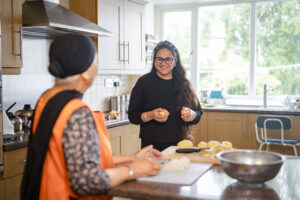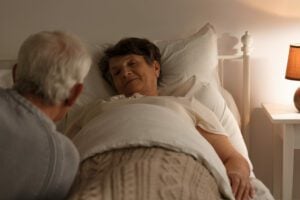Stroke care
It can be hard to watch a loved one experience the effects of a stroke and rehabilitation can be both lengthy and unpredictable. However, effective rehabilitation and care is key to ensuring the best possible quality of life.
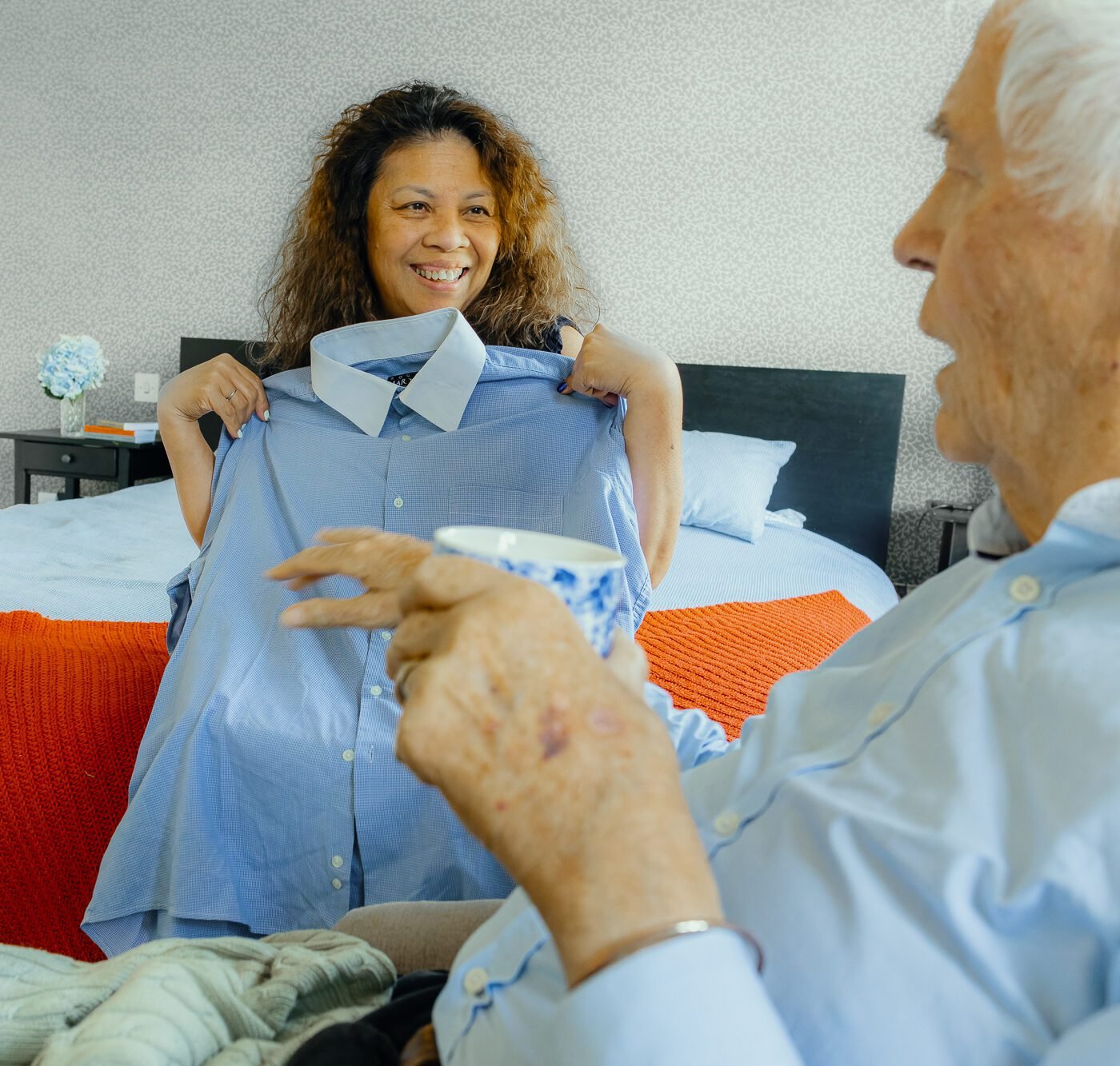
Quick overview
Every five minutes in the UK, someone experiences a stroke.
Watching a loved one recover from a stroke can be difficult, and rehabilitation lengthy.
The right care is essential in ensuring recovery and rehabilitation.
Depending on the severity of their stroke, this may mean moving into a care or nursing home, or putting a care in place in their own home. There are many ways in which you or a professional carer can support your loved one with the right stroke care. These include making changes to the home, daily exercises, encouraging the skills needed for independent living. We’ve shared more on the ways you can support your loved one’s recovery and quality of life below.
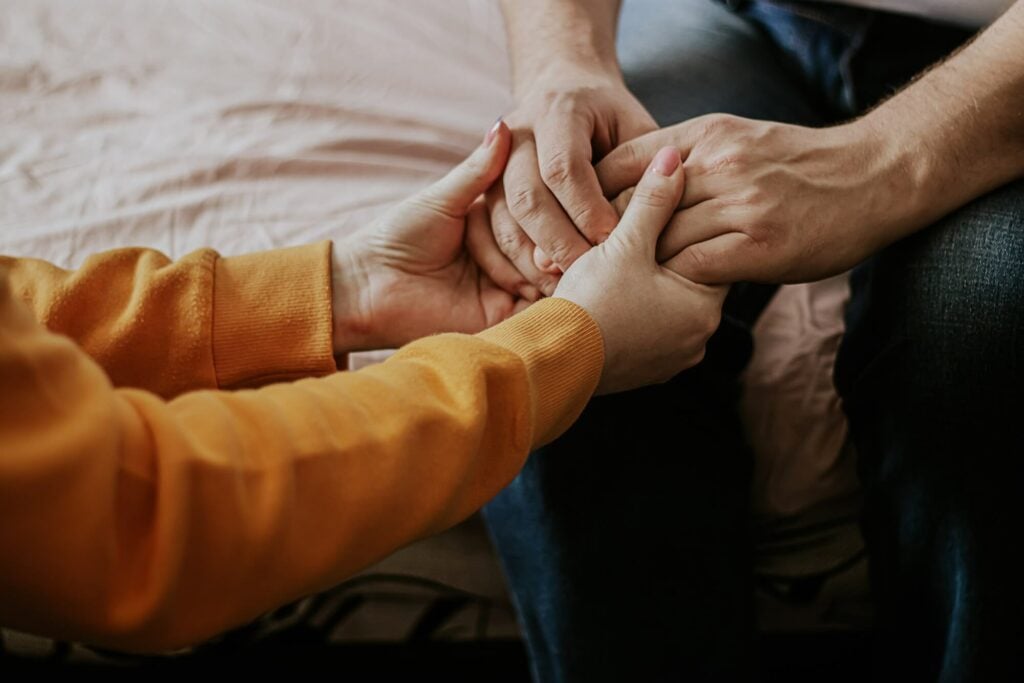
What is a stroke?
In the simplest terms, a stroke is a dangerous medical emergency that happens when the blood supply to the brain is cut off.
There are two main reasons why blood may stop getting to the brain. The first is blood clots – which can block the body’s arteries and cut off blood flow. This is called an ischaemic stroke and accounts for around 85% of cases in the UK.
The second cause is hemorrhage. This happens when a blood vessel carrying blood to the brain becomes weak and breaks under pressure – much like how a water pipe bursts.
The lack of oxygen can have a range of serious implications. Brain cells need a good blood supply to stay healthy. The longer blood is restricted, the more damaged cells become – before eventually dying.
What are the symptoms of a stroke?
The immediate symptoms are commonly described using the acronym “FAST”.
F – Face: A stroke can cause the face to droop on one side. The eye or mouth may drop, and it could become impossible to smile.
A – Arms: Another symptom is a weakness in the arms, particularly on one side. They may not be able to lift or hold their arm correctly.
S – Speech: The person’s speech may become slurred or difficult to understand. In some cases, they may not be able to talk at all.
T – Time: One of the most critical factors in combating a stroke is that treatment is delivered as quickly as possible. Call 999 as soon as you see any of these symptoms.
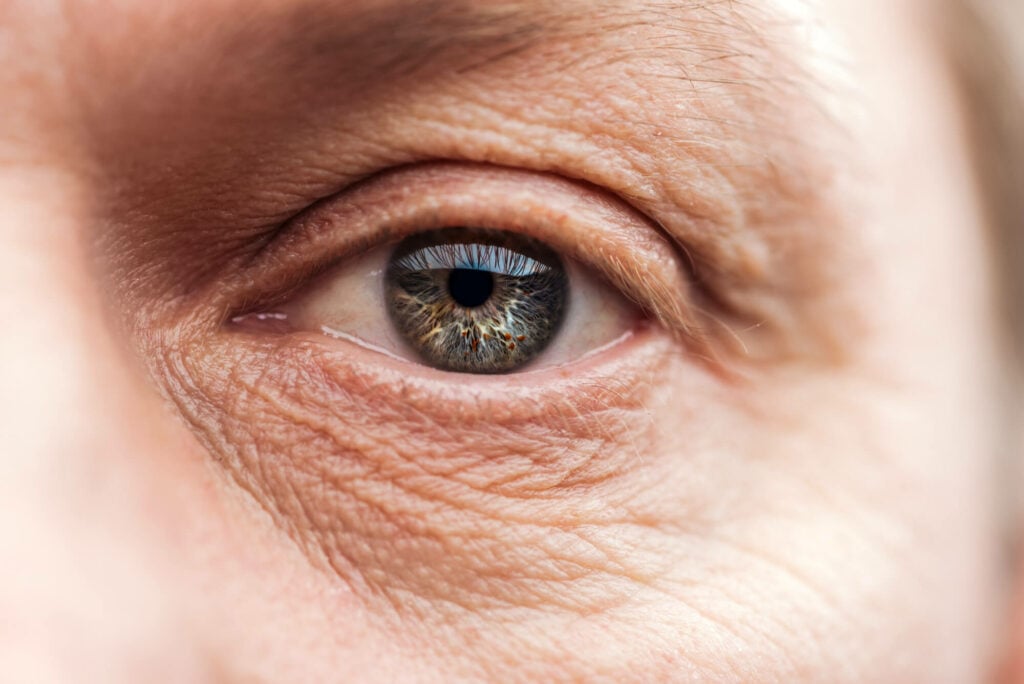
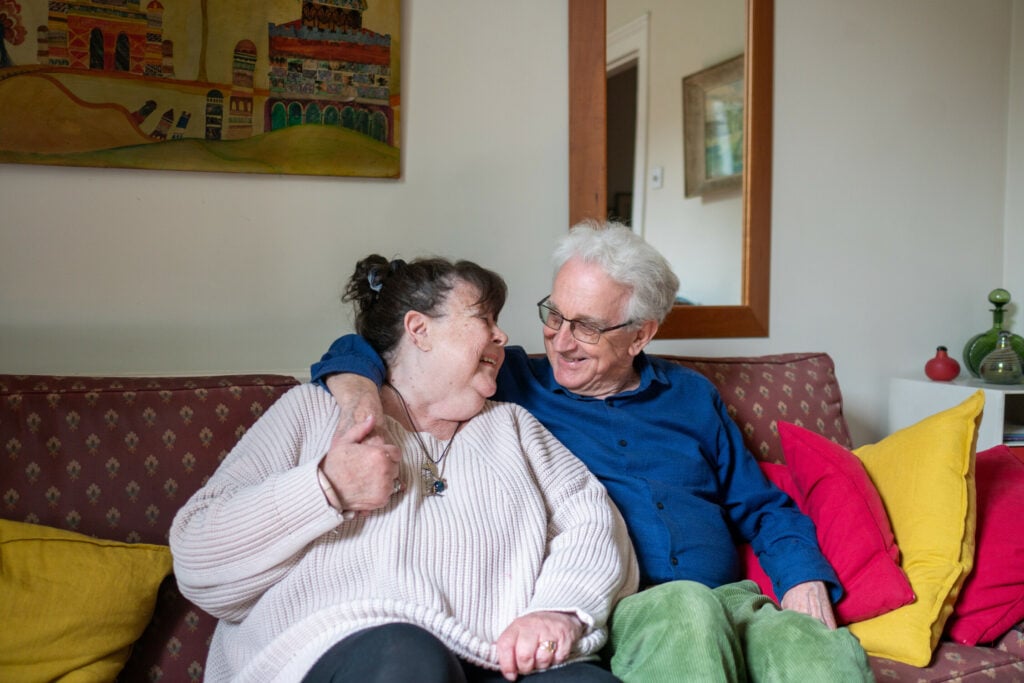
The NHS also lists the following as additional potential symptoms that could indicate a stroke:
- Paralysis of one side of the body
- Lost or blurred vision
- Dizziness
- Difficulty understanding people
- Confusion
- Lack of balance and coordination
- Trouble swallowing
- Sudden and very severe headache
- Loss of consciousness
Once at the hospital, your loved one will have a brain scan to establish the type and severity of their stroke.
What are the common types of stroke?
There are three common types of stroke. Ischaemic strokes and haemorrhagic strokes, and TIA (transient ischaemic attack) or ‘mini-stroke’.
Ischaemic stroke
Blood clots are the cause of this type of stroke. An ischaemic stroke generally happens when fatty deposits (plaques) block the arteries and prevent blood and oxygen from reaching the brain. The risk of ischaemic stroke increases as your loved one ages because arteries often become narrower over time. This type of stroke is the most common in the UK.
Other factors also increase the risk of ischaemic stroke, such as high blood pressure and high cholesterol. Obesity and diabetes can also have an impact, as well as the excessive consumption of alcohol.
Atrial fibrillation is a form of irregular heartbeat, causing blood clots in the heart. If these clots break up, they can travel to the brain and cause an ischaemic stroke.
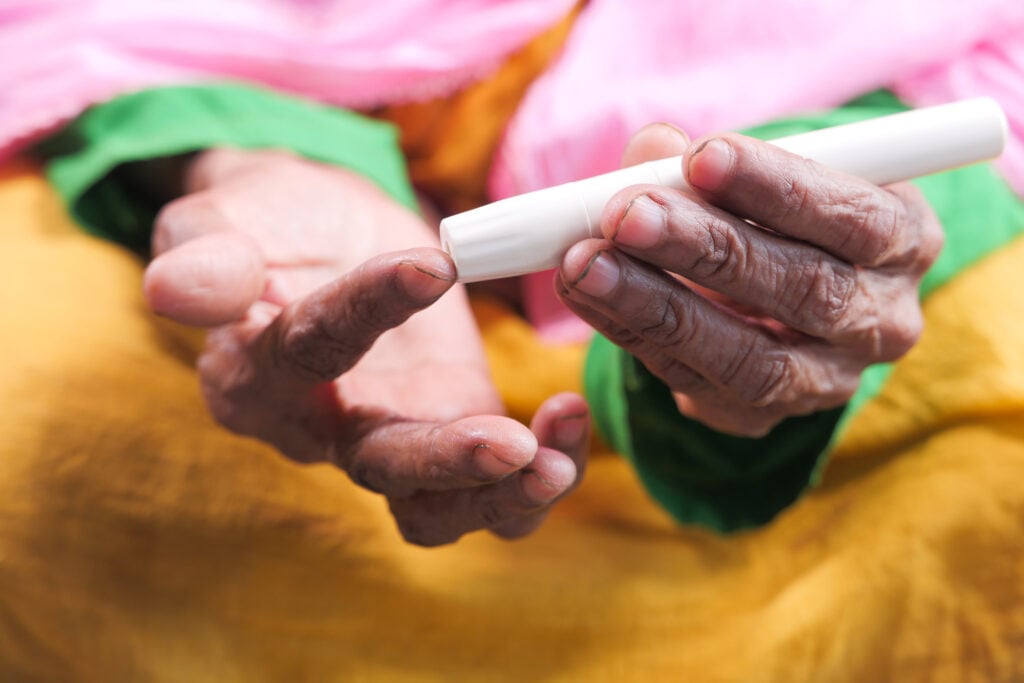
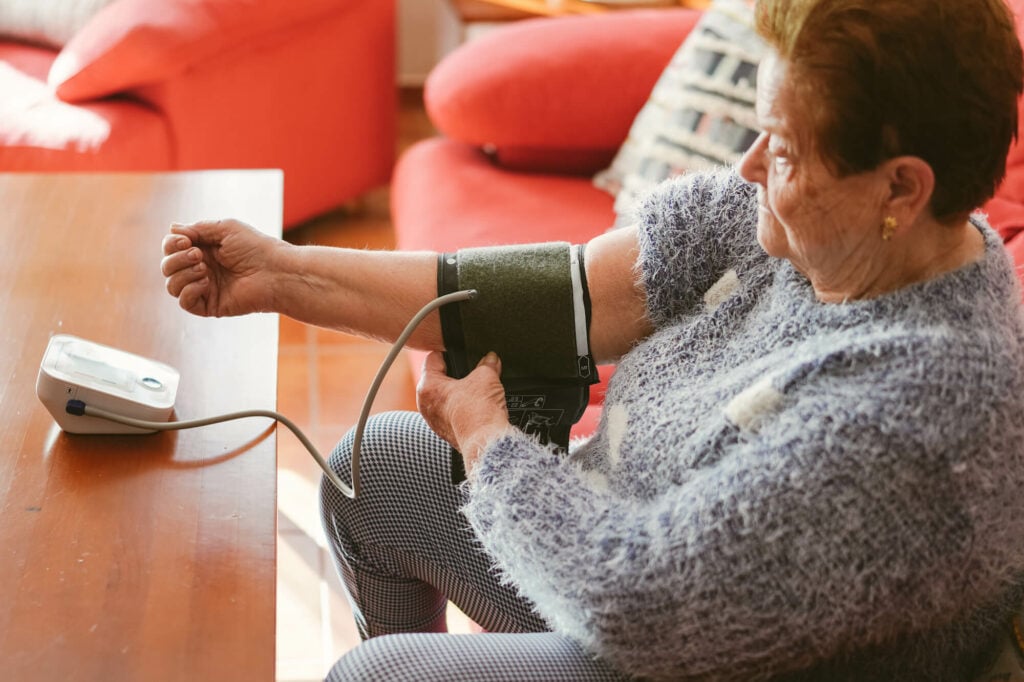
Haemorrhagic stroke
A rarer form of stroke is a haemorrhagic stroke. This type of stroke occurs when a blood vessel bursts inside the brain. These burst blood vessels are usually caused by high blood pressure which can significantly weaken them until they fail.
High blood pressure, in turn, can be caused by a range of factors. Some of the most significant include excessive drinking and smoking, lack of exercise, obesity and stress. High blood pressure is not, however, the only cause of haemorrhagic strokes. This type of stroke can also happen due to abnormally shaped blood vessels and brain aneurysms. Brain aneurysms occur when a weakened blood vessel expands like a balloon due to the pressure of the blood flowing through it. They are generally hard to detect unless they rupture, which then becomes a medical emergency.
TIA
A transient ischaemic attack (TIA) or “mini-stroke” results from a temporary disruption in the blood flow to the brain. Symptoms usually resolve within 24 hours or so, but a TIA is often a precursor to a full-blown stroke and should never be ignored.
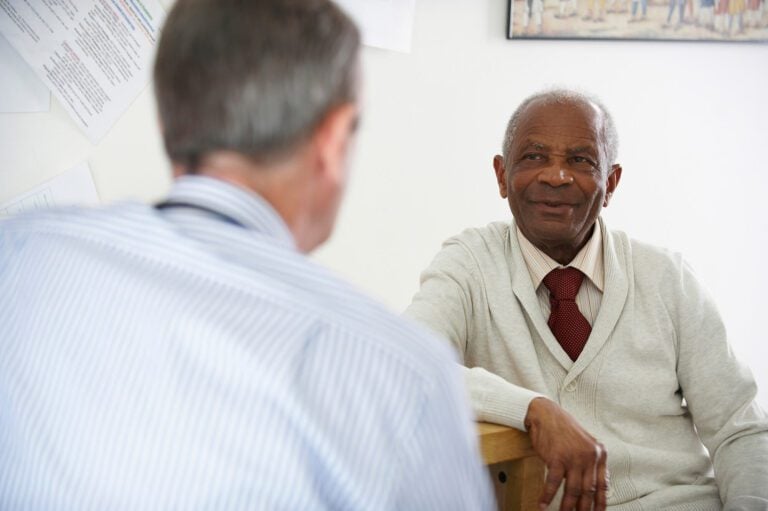
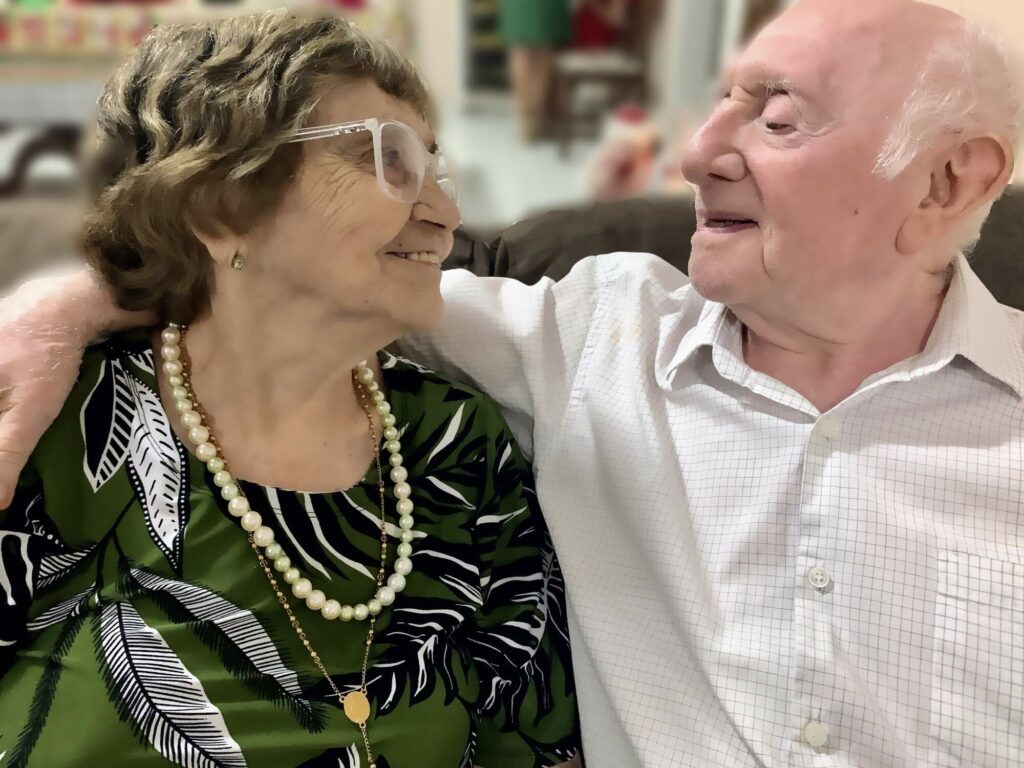
What causes a stroke?
As we age, our arteries naturally narrow and harden. This can cause the supply of blood to the brain to be restricted and therefore a lack of oxygen, causing brain cells to die. This process can be exacerbated by lifestyle factors and some medical conditions, making it more likely that some people will experience a stroke.
However, it isn’t only elderly people who are at risk of a stroke. Anyone can suffer from a stroke, including children, although this is relatively uncommon. In general, stroke is thought of as a condition that affects mainly older people.
Risk factors
Certain factors make a person more at risk of either type of stroke. Some risk factors are unavoidable, meaning that it’s essential to be aware if someone is at an increased risk so you can pay more attention to potential symptoms.
The unavoidable factors that increase the risk of stroke include age, ethnicity, family history and medical history. Strokes are most common in people over the age of fifty-five, which is why stroke care can be considered an essential part of elderly care, just like dementia care. However, Public Health England has reported the average age is falling.
People of African, Caribbean and South Asian descent are also more likely to experience a stroke. When a parent, grandparent or sibling has had a stroke, the risk of stroke increases. It also increases if you’ve experienced other conditions such as TIA, previous strokes, heart attacks, or an irregular heartbeat.
Other risks, such as high blood pressure and high cholesterol, can be reduced with a healthy diet and regular exercise, in addition to cutting back on smoking and alcohol use.
It’s also essential to take any necessary medication for high blood pressure, cholesterol, atrial fibrillation, diabetes, or previous strokes.
After stroke care
Most people will need some level of help after a stroke, and will likely need the most help in the days immediately after. This is because while the injury to their brain is still fresh they may be experiencing problems with movement, communication or ability to process information which can make independent living unsafe, or in some cases impossible. Even if someone has only experienced a mild stroke and their cognitive abilities aren’t affected too much, they may still feel unwell and fatigued for a while.
There is no set time frame for how long it’ll take someone to recover from a stroke – sometimes it can take years. However the fastest period of recovery usually happens in the first weeks and months.
Strokes can have a significant long-term impact. Sometimes, a person who has experienced a stroke will need short-term care to support them while they relearn basic skills such as speech and movement. Some people will eventually regain their full independence, while others may need home care for the rest of their lives to help them regain as much quality of live as possible.
Care options
If your elderly loved one has suffered a stroke, then the chances are high that they will want to return to their own home as quickly as possible.
However, depending on which part of the brain was affected, they may have distressing symptoms to cope with.
No two strokes are the same, and so there’s no ‘one size fits all’ solution when it comes to recovery.
Someone who has suffered a stroke is likely to have complex needs once they return home, which may be beyond the scope of family members. They may need help with sitting up, getting dressed, bathing, toileting and other aspects of personal grooming and hygiene. They may not be able to make themselves understood if their speech has been affected, and they may become easily confused.
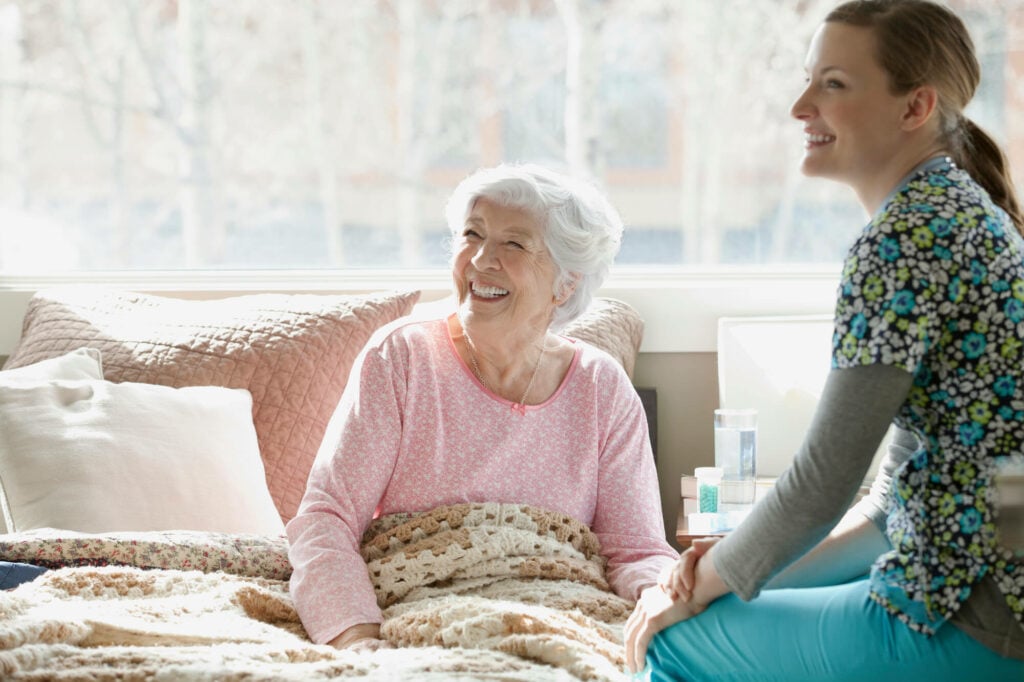
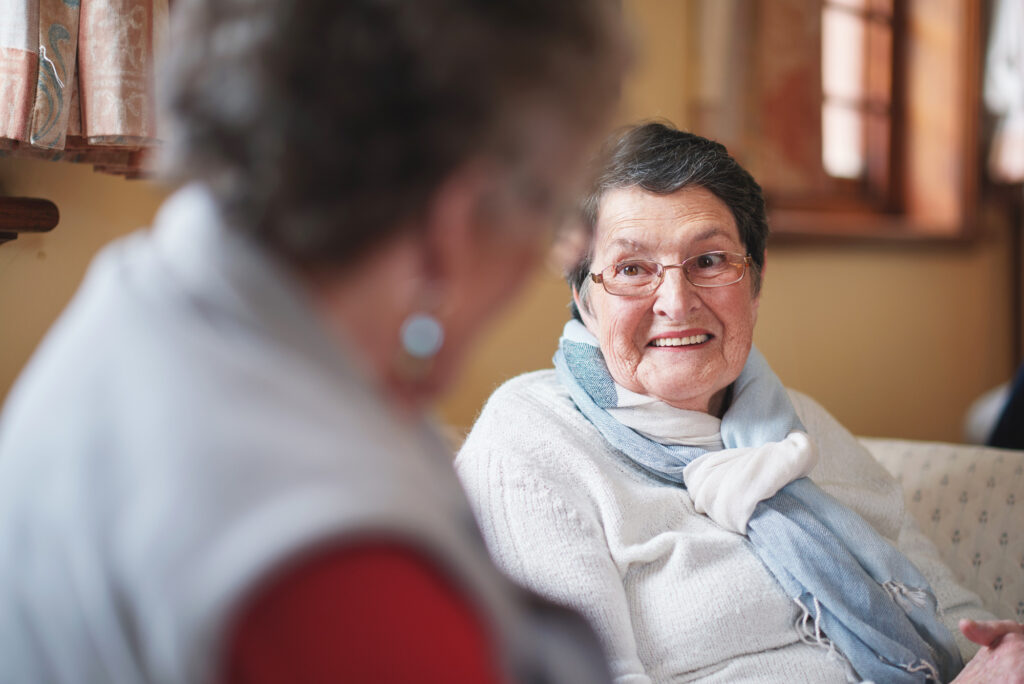
Psychological impact
It can be quite common for people to experience depression or anxiety after a stroke. Someone may feel upset, angry or hopeless about their situation, or fearful about the future, or find certain situations overwhelming.
When leaving hospital a person should be have a psychological assessment from a member of their healthcare team. If they have an concerns about depression or anxiety, they should provide advice on where to go for help and what happens next, and arrange follow ups to keep track of their emotional state.
How Elder can help
Whether long-term or short-term, Elder can help connect you to the right carer for post-stroke care at home.
For short-term care needs – your loved one may be entitled to intermediate care, provided by the NHS or convalescent care whilst they recover. Be vocal about your desire for live-in care, if that’s your preference.
In the long-term, a dedicated live-in carer could be an ideal solution. It takes the pressure of care away from family members who may not have the knowledge, skills or availability to provide round-the-clock complex stroke support.
The carer can liaise with other therapists involved in your loved one’s treatment too, such as physiotherapists and language therapists to support daily rehabilitation activities.
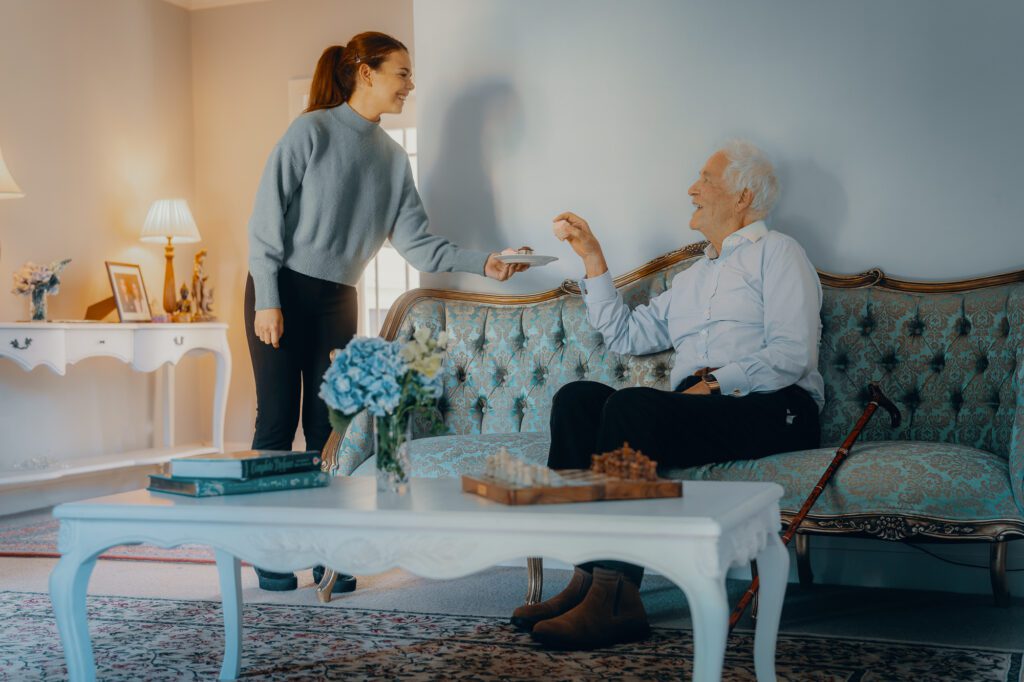
Heike’s Story
Heike is an independent carer on the Elder platform. She  moved in to support a family that was apprehensive about the idea of live-in care, but desperately needed some support for a loved one recovering from a stroke. Not only did she turn things around dramatically for them, her care and attention earned her Elder’s Care of the Month award too.
moved in to support a family that was apprehensive about the idea of live-in care, but desperately needed some support for a loved one recovering from a stroke. Not only did she turn things around dramatically for them, her care and attention earned her Elder’s Care of the Month award too.
Heike stayed up all night with the client with no complaints, made his favourite lunches, and helped with his speech therapy after his stroke.
“We wish she could stay forever. We love her generosity and sense of fun… AND her delicious home cooking.”
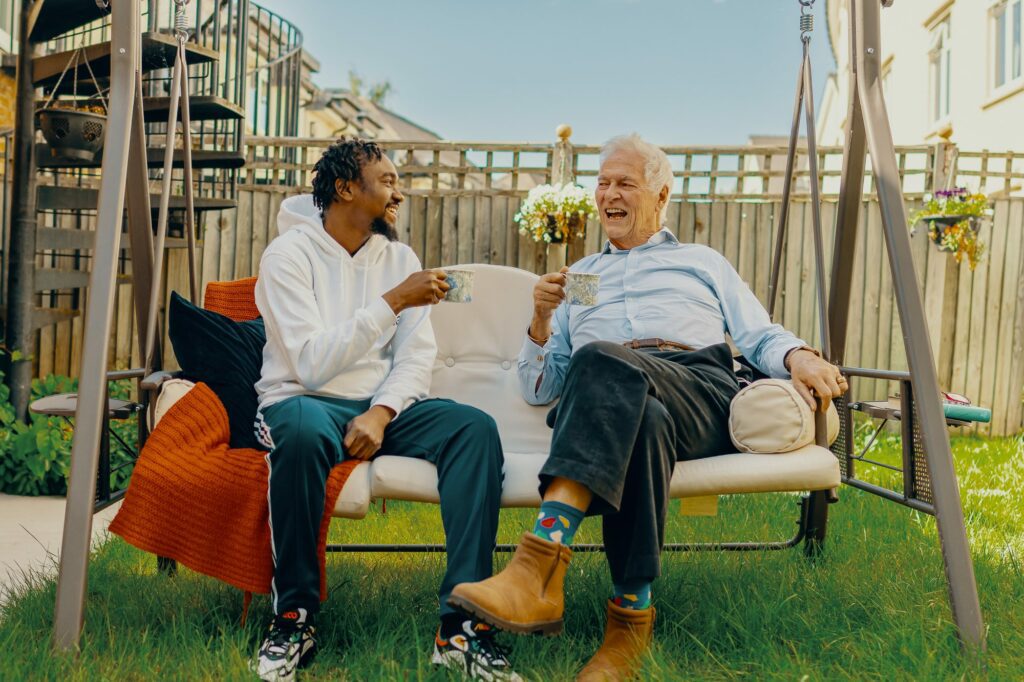
What can a live-in carer help with?
- Support daily movement and strength building
- Help those with muscle weakness or vision loss avoid trips or falls
- Offer reassurance and dignified support to incontinence issues
- Support with washing, ensuring water is a safe temperature for those who have become less sensitive to hot and cold sensations
- Prepare nutritious meals to satisfy changing tastes, or special meals for those with swallowing problems
- Provide full-time companionship to those feeling low or isolated by their stroke
- Prompt someone when it’s time to take their medication,
- Help create a comfortable home environment for those who have become more sensitive to sound and touch
- Help build a positive routine to manage fatigue
FAQs
While it’s true that older people have a higher stroke risk, anyone can experience a stroke at any age.
According to the NHS, one in every four stroke cases occurs in people under the age of 55. The American Heart Association has warned that cases of stroke could be on the rise in younger people too. With people often drinking over the recommended intake of alcohol, eating unhealthy foods, and taking long-haul flights, blood pressure and clots are becoming more common.
The reason that stroke is often associated with older people is that blood vessels and arteries naturally get harder and narrower with age. They may also become clogged with a fatty substance called atherosclerosis.
Stroke is also linked to a type of dementia, called vascular dementia. This is the second most common type of dementia and can develop after a stroke.
Behavioural changes can happen after a stroke for a couple of reasons.
A stroke is a huge life-changing event. Following a stroke, you may feel angry that it’s happened, or frustrated that you’re unable to do things you could before. if your recovery is slow you may also feel low, depressed, or anxious about the future. With the right support, these feelings can pass.
The damage caused to brain cells during a stroke can change a person’s behaviour too. Our brains are the centre of our understanding, our feeling, and our emotions. If the parts responsible for these functions become damaged, it becomes difficult to respond correctly to the world and people around us.
This may result in aggressive outbursts, extreme apathy, or behaviour that makes other people uncomfortable.
While these changes aren’t always guaranteed to get better with time, organisations like the Stroke Association offer support for stroke patients and their families that can help manage them.
While the majority of your recovery will happen in the first six months following a stroke, you can continue to improve for many years after.
After a stroke, your healthcare team will work with you to create a rehabilitation plan based on the effects of your stroke. They’ll look at things like your ability to eat and drink safely, your mobility, and your communication.
Rehabilitation is often difficult at first – it can be incredibly tiring and frustrating re-learning skills and strengthening your body. The specialists involved in your care will help you set achievable goals and ensure recovery happens safely.
According to one government study. stroke deaths in England have fallen by 49% over the past 15 years. This is believed to be a direct result of better prevention, treatment, and stroke care.
Alteplase, for example is a fast-acting medicine that can break down blood clots. It can be highly effective in preventing damage to the brain when administered within the first four hours after a stroke.
